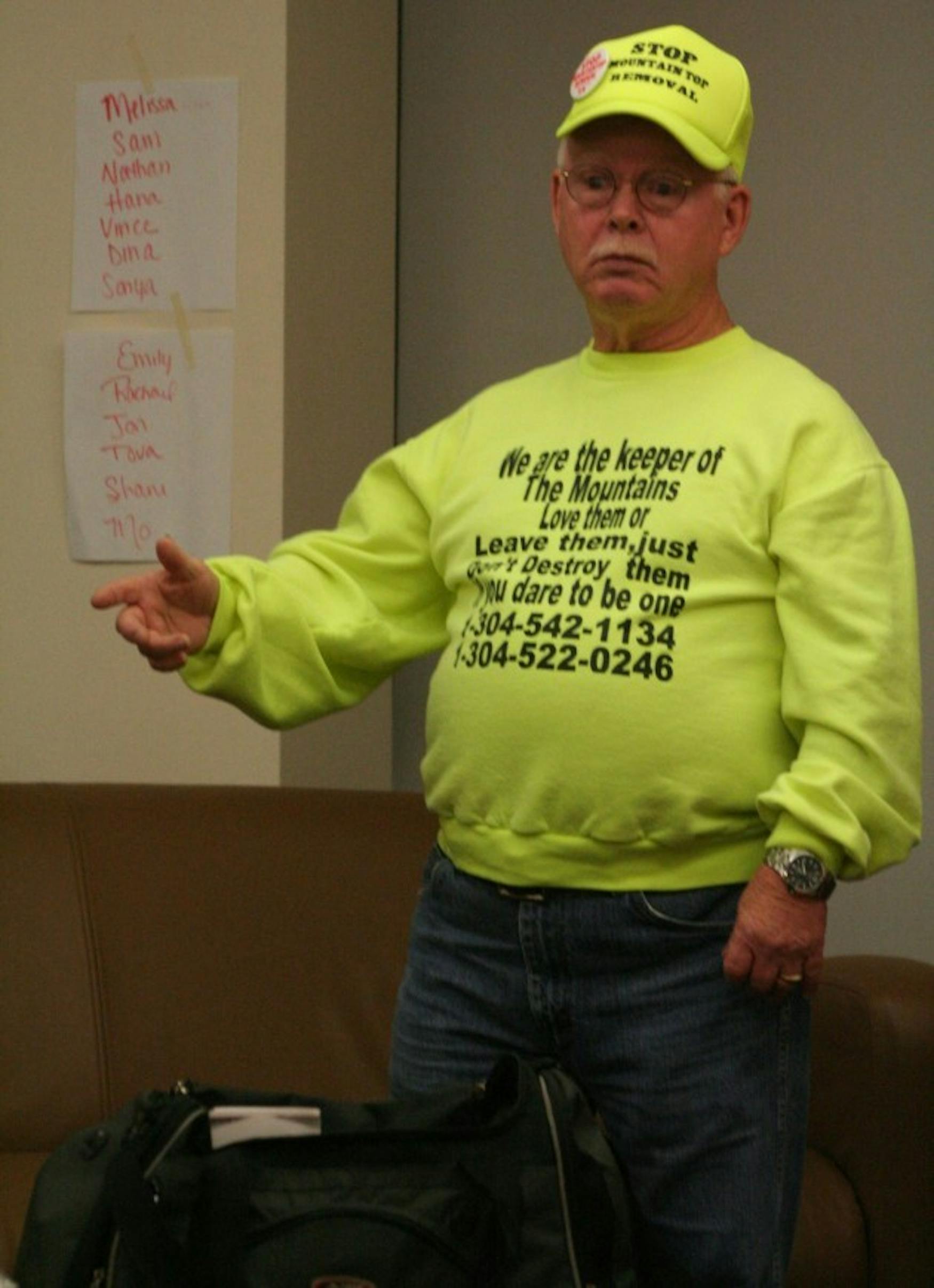Larry Gibson cites risks of mountaintop removal
Last Tuesday, Board President of the Keeper of the Mountains Foundation Larry Gibson lectured in the Polaris Lounge, discussing the Appalachian area's destruction through mountaintop removal and encouraging people to get involved to help end it and transition to clean energy.
The event was primarily hosted by Students for Environmental Action and the Environmental Health and Social Justice Justice Brandeis Semester, with the additional interest and support of other clubs.
Mountaintop removal, a type of mining involving removing the upper layers of a mountain to gain easier access to coal, is a widely used method in the Appalachian Mountains.
Gibson, who was raised in West Virginia on Kayford Mountain and still lives on the same land, has been fighting a battle to end it for over 20 years.
Gibson recalled when the coal-extraction process first began near his home and how easily he thought it could be halted: "I figure I'll tell people [to spread the word and stop it], and in six months we'll get this fixed. … It's been the longest six months of my life."
He claimed that the mining industry has destroyed 544 mountain ranges in Appalachia thus far.
Gibson described the encroachment on his 50 acres of land—he is currently "enveloped [by] more than 7,500 acres of destruction of what was previously a forested mountain range," according to mountainjustice.org. However he expressed more fervent concern about the lasting health effects of the process.
"I wasn't used to this air when I got up here," Gibson said, referring to the Massachusetts air being cleaner than that of his hometown. "You have a better chance living 10 years more here than [in West Virginia] because of the pollution."
He also noted the clear streams he observed while traveling across Massachusetts, explaining that the last time he'd seen such clear waters back home was when he was a boy, about 50 years ago.
Gibson also noted the environmental impacts and referenced facts from mountainjustice.org, including that, even after the reclamation of mountains affected by mountaintop removal, "full reforestation [back to their original, natural states] actually takes hundreds of years."
He also explained that in Appalachia, the health risks are simply glossed over. "Down there, what's mine-waste material up here is hazardous-waste material."
Despite the positive encouragement he received from the 18,000 people who have visited his home over the years to see the destruction first-hand, Gibson said that his views are not always received favorably.
"Just before I began this trip up here [to the Northeast], I had 11 of my cabins broken into and everything destroyed," he said.
"Aren't we supposed to be a civilized nation? Why are we still destroying our people? … Why are we still using … coal?" he asked. He suggested trying to use more environmentally-friendly forms of energy, such as wind-powered energy. "If you don't like a windmill, you can turn it down. If you don't like what they do to a mountain, you can't put it back," he said.
Liza Ansher '13, who attended the lecture, said that Gibson's talk was eye-opening.
"I never really knew the environmental problems of mountaintop [removal]," she said in an interview with the Justice.
She added that the event was a "good introduction" to the issue, since as a student in the Environmental Health and Social Justice JBS, she will travel to Kentucky where she and her class will see the effects of mountaintop removal firsthand.
Prof. Laura Goldin (AMST), who is the chair of Environmental Studies and teaches the Environmental Health and Social Justice JBS, said in an interview with the Justice that she thought Gibson's talk was a "great preview" for the upcoming Kentucky trip, during which she and her students intend to take him up on his challenge to take environmental action.
She said that, for example, the group will be doing "some water testing to look at the effect on the water supply from mountain top removal."
Gibson concluded on a note of encouragement, urging students and faculty to make their voices heard. "Stop talking; start acting, or the ones behind you won't have a chance. … If it can happen to me, it can happen to y'all."




Please note All comments are eligible for publication in The Justice.